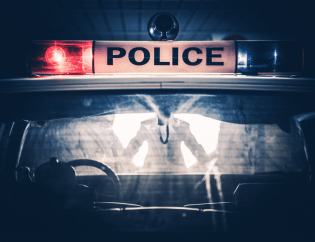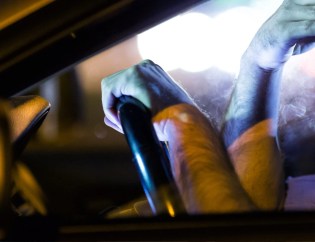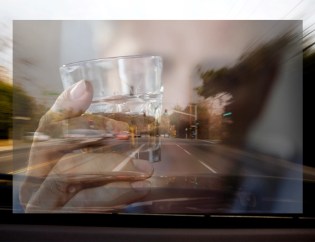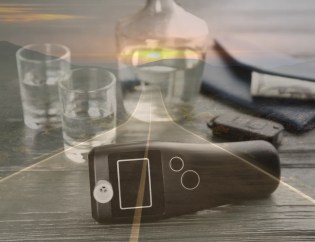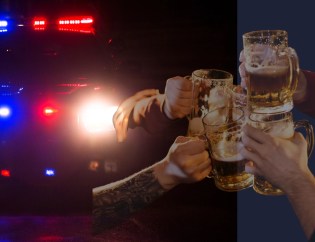
What Happens When You’re Arrested for a DWI in Texas?
Being arrested for Driving While Intoxicated (DWI) in Texas can be stressful and confusing. You may not know what to expect, what your rights are, or how to protect your future. At Blizzard and Zimmerman Attorneys, our goal is to help you understand the process, and to stand beside you through every step of it.
Jacob Blizzard, our firm’s Board-Certified Criminal Law and Criminal Appellate Attorney (certified by the Texas Board of Legal Specialization), has helped countless Texans protect their rights after a DWI arrest. His expertise and courtroom experience give clients confidence that their case is being handled with skill and strategy.
Below is a friendly, clear guide to what you can expect when you are arrested for a Texas Penal Code § 49.04 (DWI) in Texas, what your rights are, and what comes next. This is for informational purposes only and not legal advice.
1. The Traffic Stop & Arrest
Typically, the process begins with a traffic stop. An officer may pull you over for erratic driving, speeding, an open-container, or simply a sobriety checkpoint.
Once pulled over, you might be asked:
- To exit the vehicle.
- To perform field-sobriety tests (walk-and-turn, one-leg-stand, etc.).
- To submit to a portable breath-alyzer (depending on jurisdiction).
- If the officer believes you’re intoxicated, you’ll likely be placed under arrest and taken to a detention facility.
2. Intoxication Testing & Booking
After you are arrested:
- You’ll be booked: fingerprints, photographs, personal information collected.
- The officer may request you submit to a breath or blood test. Texas has an “implied consent” law, meaning that by driving, you’ve already agreed to testing if you’re arrested for DWI. Refusing the test usually leads to an automatic driver’s license suspension under the Texas Transportation Code § 724.035.
While the criminal case is underway, the administrative side (driver’s license issue) is already moving.
3. The Charge: What Is a DWI in Texas?
Here’s how Texas law defines and penalizes DWI:
Under Texas Penal Code § 49.04: “A person commits an offense if the person is intoxicated while operating a motor vehicle in a public place.”
The statute further states that, except where enhanced, the offense is a Class B misdemeanor with a minimum confinement of 72 hours.
The basic DWI offense is a Class B misdemeanor, carrying:
- A minimum of 72 hours in jail
- Up to 180 days in jail
- A fine up to $2,000
If your BAC is 0.15% or higher, it can become a Class A misdemeanor, with up to 1 year in jail and fines up to $4,000.
In Texas, intoxication is defined in two ways:
- Having a Blood Alcohol Concentration (BAC) of 0.08% or higher.
- Not having the “normal use of mental or physical faculties” because of alcohol, drugs, or both.
Enhancements: For example, if your BAC is 0.15% or greater, the offense can be upgraded to a Class A misdemeanor.
It gets even more serious if you are intoxicated and have a child (under 15) in the vehicle, that’s a separate offense under § 49.045, which is a state-jail felony.
4. Driving Privileges & Administrative License Revocation (ALR)
Even before the criminal case is resolved, your driver’s license is at risk:
- After arrest for DWI (or refusal of testing), the Texas Department of Public Safety (DPS) can begin the Administrative License Revocation (ALR) process.
- You generally have 15 days after your arrest to request an ALR hearing if you wish to challenge the suspension.
- If you don’t request that hearing, your license will be automatically suspended.
5. Bail/Release & Arraignment
After booking, you’ll usually be released on bail (or a bond) or sometimes on your own recognizance, depending on the county and your record/status.
Your first court appearance is the arraignment. At this hearing, you’ll hear the charges, and you’ll typically be asked to enter a plea (guilty, not guilty, or no contest).
6. The Court Case & Possible Outcomes
Once the case proceeds:
Discovery, motions, potential plea negotiations, or trial.
For a first-offense DWI (with no aggravating factors): penalties may include:
- A fine up to $2,000.
- Jail time up to 180 days (for Class B) for first offence.
- Suspension of driver’s license up to 1 year (or more depending on circumstances).
- Other consequences: probation, mandatory DWI intervention/education, ignition interlock device.
- Enhanced or repeat offenses bring significantly harsher penalties (Class A misdemeanors or felonies).
7. Longer-Term Impact
Yes, there is a long term impact.
A DWI conviction remains on your record permanently (unless pardoned).
Insurance rates increase, employment/licensing challenges may arise, travel restrictions for certain countries, etc.
The legal process can take several months to over a year depending on the jurisdiction, complexity, and whether there’s a trial.
8. What You Can Do
- Stay calm.
- Being arrested is scary but try to avoid making it worse (e.g., avoid arguing or taking other actions that could lead to additional charges).
- Invoke your rights.
- You have the right to remain silent. You have the right to an attorney.
- Request the ALR hearing within 15 days.
- Protect your driving privileges early.
- Contact a board certified attorney who focuses on DWI defense.
- The earlier you consult the better.
- Comply with bail/bond conditions.
- Failure to appear or follow conditions can lead to extra penalties.
- Avoid driving at all if your license is suspended.
- If you do, you could face separate charges.
- Take any required education/intervention seriously.
- This may be required by the court or may assist in your defense.
9. A Friendly Reminder
Getting arrested for DWI cetainly is serious - but you still have rights. There are steps you can take to protect yourself and your future.
Every case has unique facts. The outcome depends on your record, BAC, whether anyone was hurt, and how the arrest and evidence were handled.
If you or someone you care about is facing a DWI arrest, speak with a qualified Texas DWI attorney as soon as possible.
In summary:
If you’re arrested for a DWI in Texas, you’re looking at a two-track system: an administrative side (license suspension) and a criminal side (the charge, court, penalties).
The law that covers DWI is Texas Penal Code § 49.04.
Knowing the process, your rights, and acting quickly can make a meaningful difference.
Contact Jacob Blizzard, a dedicated specialist Abilene DWI attorney, for a confidential consultation today at (325) 326-5962. Let us help you navigate this difficult time and work to protect your future.




